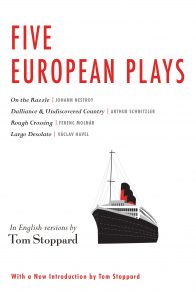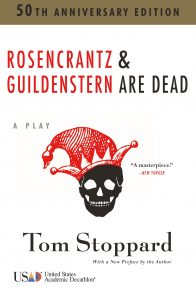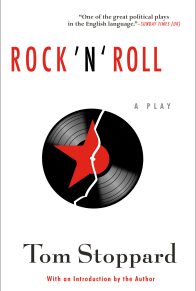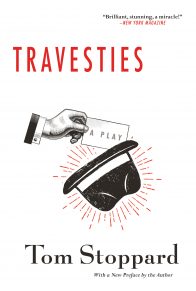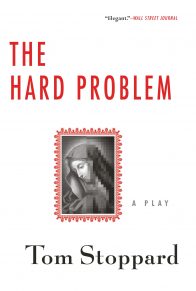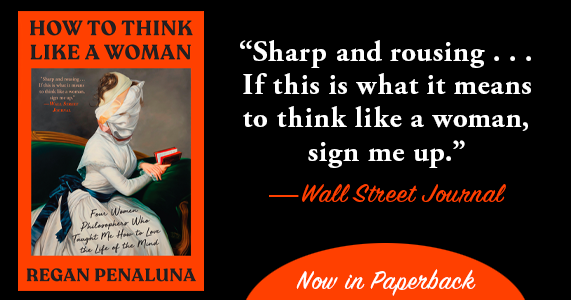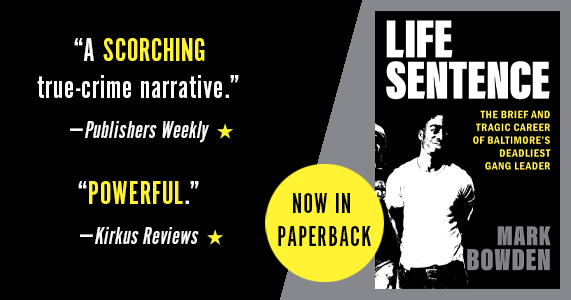Three separate acting areas are needed.
1. The CELL needs two beds.
2. The OFFICE needs a table and two chairs.
3. The SCHOOL needs a school desk.
These areas can be as small as possible but each has to be approachable from each of the others, and the lighting on each ought to be at least partly controllable independently of the other two and of the orchestra itself, which needless to say occupies the platform.
The CELL is occupied by two men, ALEXANDER amd IVANOV. ALEXANDER is a political prisoner and IVANOV is a genuine mental patient.
It will become clear in performance, but may well be stated now, that the orchestra for part of the time exists in the imagination of IVANOV.
IVANOV has with him an orchestral triangle.
The OFFICE is empty.
In the SCHOOL the TEACHER stands, and SACHA sits at the desk.
The OFFICE and SCHOOL are not “lit.” In the CELL, ALEXANDER and IVANOV sit on their respective beds. The orchestra tunes-up.
The tuning-up continues normally but after a minute or two the musicians lapse into miming the tuning-up.
Thus we have silence while the orchestra goes through the motions of tuning.
IVANOV stands up, with his triangle and rod. The orchestra becomes immobile.
Silence.
IVANOV strikes the triangle, once. The orchestra starts miming a performance. He stands concentrating, listening to music which we cannot hear, and striking his triangle as and when the “music” requires it. We only hear the triangle occasionally. ALEXANDER watches this—a man watching another man occasionally hitting a triangle.
This probably lasts under a minute. Then, very quietly, we begin to hear what IVANOV can hear, i.e. the orchestra becomes audible. So now his striking of the triangle begins to fit into the context which makes sense of it.
The music builds slowly, gently. And then on a single cue the platform light level jumps up with the conductor in position and the orchestra playing fully and loudly. The triangle is a prominent part in the symphony.
Now we are flying. ALEXANDER just keeps watching IVANOV.
IVANOV: (Furiously interrupts) —No—no—no— (The orchestra drags to a halt.) (Shouts.) Go back to the timpani. (The orchestra goes back, then relapses progressively, swiftly, into mime, and when it is almost inaudible ALEXANDER coughs loudly. IVANOV glances at him reproachfully. After the cough there is only silence with IVANOV intermittently striking his triangle, and the orchestra miming.)
IVANOV: Better—good—much better . . . (ALEXANDER is trying not to cough. IVANOV finishes with a final beat on the triangle. The orchestra finishes. IVANOV sits down. ALEXANDER coughs luxuriously.)
IVANOV: (Apologetically) I know what you’re thinking.
ALEXANDER: (Understandingly) It’s all right.
IVANOV: No, you can say it. The cellos are rubbish.
ALEXANDER: (Cautiously) I’m not really a judge of music.
IVANOV: I was scraping the bottom of the barrel, and that’s how they sound. And what about the horns?—should I persevere with them?
ALEXANDER: The horns?
IVANOV: Brazen to a man but mealy-mouthed. Butter wouldn’t melt. When I try to reason with them they purse their lips. Tell me, do you have an opinion on the fungoid log-rollers spreading wet rot through the woodwinds? Not to speak of the glockenspiel.
ALEXANDER: The glockenspiel?
IVANOV: I asked you not to speak of it. Give me a word for the harpist.
ALEXANDER: I don’t really—
IVANOV: Plucky. A harpist who rushes in where a fool would fear to tread—with all my problems you’d think I’d be spared exquisite irony. I’ve got a blue-arsed bassoon, a blue-tongued contra-bassoon, an organ grinder’s chimpani, and the bass drum is in urgent need of a dermatologist.
ALEXANDER: Your condition is interesting.
IVANOV: I’ve got a violin section which is to violin playing what Heifetz is to water-polo. I’ve got a tubercular great-nephew of John Philip Sousa who goes oom when he should be going pah. And the Jew’s harp has applied for a visa. I’m seriously thinking of getting a new orchestra. Do you read music?
ALEXANDER: No.
IVANOV: Don’t worry: crochets, minims, sharp, flat, every good boy deserves favour. You’ll pick it up in no time. What is your instrument?
ALEXANDER: I do not play an instrument.
IVANOV: Percussion? Strings? Brass?
ALEXANDER: No.
IVANOV: Reed? Keyboard?
ALEXANDER: I’m afraid not.
IVANOV: I’m amazed. Not keyboard. Wait a minute—flute.
ALEXANDER: No. Really.
IVANOV: Extraordinary. Give me a clue. If I beat you to a pulp would you try to protect your face or your hands? Which would be the more serious—if you couldn’t sit down for a week or couldn’t stand up? I’m trying to narrow it down, you see. Can I take it you don’t stick this instrument up your arse in a kneeling position?
ALEXANDER: I do not play an instrument.
IVANOV: You can speak frankly. You will find I am without prejudice. I have invited musicians into my own house. And do you know why?—because we all have some musician in us. Any man says he has no musician in him, I’ll call that man a bigot. Listen, I’ve had clarinet players eating at my own table. I’ve had French whores and gigolos speak to me in the public street, I mean horns, I mean piccolos, so don’t worry about me, maestro, I’ve sat down with them, drummers even, sharing a plate of tagliatelle Verdi and stuffed Puccini—why, I know people who make the orchestra eat in the kitchen, off scraps, the way you’d throw a trombone to a dog, I mean a second violinist, I mean to the lions; I love musicians, I respect them, human beings to a man. Let me put it like this: if I smashed this instrument of yours over your head, would you need a carpenter, a welder, or a brain surgeon?
ALEXANDER: I do not play an instrument. If I played an instrument I’d tell you what it was. But I do not play one. I have never played one. I do not know how to play one. I am not a musician.
IVANOV: What the hell are you doing here?
ALEXANDER: I was put here.
IVANOV: What for?
ALEXANDER: For slander.
IVANOV: Slander? What a fool! Never speak ill of a musician!—those bastards won’t rest. They’re animals, to a man.
ALEXANDER: This was political.
IVANOV: Let me give you some advice. Number one—never mix music with politics. Number two—never confide in your psychiatrist. Number three—practise!
ALEXANDER: Thank you. (IVANOV strikes his triangle once.The CELL lighting fades.Percussion band. The music is that of a band of young children.It includes strings but they are only plucked.Pretty soon the percussion performance goes wrong because thereis a subversive triangle in it. The triangle is struck randomlyand then rapidly, until finally it is the only instrument to beheard. And then the triangle stops.)
SCHOOL
The lights come up on the TEACHER and SACHA. The TEACHER is holding a triangle.
TEACHER: Well? Are you colour blind?
SACHA: No.
TEACHER: Let me see your music. (SACHA has sheet music on his desk.)Very well. What are the red notes?
SACHA: Strings.
TEACHER: Green?
SACHA: Tambourine.
TEACHER: Purple?
SACHA: Drum.
TEACHER: Yellow?
SACHA: Triangle.
TEACHER: Do you see forty yellow notes in a row?
SACHA: No.
TEACHER: What then? Detention is becoming a family tradition.Your name is notorious. Did you know that?
SACHA: Yes.
TEACHER: How did you know?
SACHA: Everybody tells me.
TEACHER: Open a book.
SACHA: What book?
TEACHER: Any book. Fathers and Sons, perhaps. (SACHA takes a book out of the desk.) Is it Turgenev?
SACHA: It’s my geometry book.
TEACHER: Yes, your name goes round the world. By telegram. It is printed in the newspapers. It is spoken on the radio. With such a famous name why should you bother with different colours? We will change the music for you. It will look like a field of buttercups, and sound like dinnertime.
SACHA: I don’t want to be in the orchestra.
TEACHER: Open the book. Pencil and paper. You see what happens to anti-social malcontents.
SACHA: Will I be sent to the lunatics’ prison?
TEACHER: Certainly not. Read aloud.
SACHA: “A point has position but no dimension.”
TEACHER: The asylum is for malcontents who don’t know what they’re doing.
SACHA: “A line has length but no breadth.”
TEACHER: They know what they’re doing but they don’t know it’s anti-social.
SACHA: “A straight line is the shortest distance between two points.”
TEACHER: They know it’s anti-social but they’re fanatics.
SACHA: “A circle is the path of a point moving equidistant to a given point.”
TEACHER: They’re sick.
SACHA: “A polygon is a plane area bounded by straight lines.”
TEACHER: And it’s not a prison, it’s a hospital. (Pause.)
SACHA: “A triangle is the polygon bounded by the fewest possible sides.”
TEACHER: Good. Perfect. Copy neatly ten times, and if you’re a good boy I might find you a better instrument.
SACHA: (Writing) “A triangle is the polygon bounded by the fewest possible sides.” Is this what they make papa do?
TEACHER: Yes. They make him copy, “I am a member of an orchestra and we must play together.”
SACHA: How many times?
TEACHER: A million.
SACHA: A million? (Pause.) (Cries.) Papa!
ALEXANDER: (Cries) Sacha! (This cry is ALEXANDER shouting in his sleep at the other end of the stage. IVANOV sits watching ALEXANDER. The orchestra plays chords between the following.)
SACHA: Papa!
TEACHER: Hush!
ALEXANDER: Sacha! (The orchestra continues with percussion element for perhaps ten seconds and then is sabotaged by a triangle beaten rapidly, until the triangle is the only sound heard. ALEXANDER sits up and the triangle stops.)
CELL
IVANOV: Dinner time. (Orchestra.)
OFFICE
IVANOV goes to sit at the table in the OFFICE, which is now the lit area.
In the orchestra one of the lowliest violinists leaves his place. The orchestra accompanies and parodies this man’s actions as he leaves the platform and enters the OFFICE. IVANOV is sitting at the table on one of the chairs. The man (DOCTOR) puts his violin on the table. The orchestra has been following him the whole time and the DOCTOR’s movements fit precisely to the music.
IVANOV jumps up from his chair and shouts in the general direction of the orchestra.
IVANOV: All right, all right! (The music cuts out. The DOCTOR pauses looking at IVANOV.)
IVANOV: (To the DOCTOR) I’m sorry about that. (IVANOV sits down. The DOCTOR sits down and all the strings accompany this movement into his chair. IVANOV leaps up again.) (Shouts.) I’ll have your gut for garters!
DOCTOR: Sit down, please.
IVANOV: (Sitting down) It’s the only kind of language they understand.
DOCTOR: Did the pills help at all?
IVANOV: I don’t know. What pills did you give them?
DOCTOR: Now look, there is no orchestra. We cannot make progress until we agree that there is no orchestra.
IVANOV: Or until we agree that there is.
DOCTOR: (Slapping his violin, which is on the table) But there is no orchestra. (IVANOV glances at the violin.) I have an orchestra, but you do not.
IVANOV: Does that seem reasonable to you?
DOCTOR: It just happens to be so. I play in an orchestra occasionally. It is my hobby. It is a real orchestra. Yours is not. I am a doctor. You are a patient. If I tell you you do not have an orchestra, it follows that you do not have an orchestra. If you tell me you have an orchestra, it follows that you do not have an orchestra. Or rather it does not follow that you do have an orchestra.
IVANOV: I am perfectly happy not to have an orchestra.
DOCTOR: Good.
IVANOV: I never asked to have an orchestra.
DOCTOR: Keep saying to yourself, “I have no orchestra. I have never had an orchestra. I do not want an orchestra.”
IVANOV: Absolutely.
DOCTOR: “There is no orchestra.”
IVANOV: All right.
DOCTOR: Good.
IVANOV: There is one thing you can do for me.
DOCTOR: Yes?
IVANOV: Stop them playing.
DOCTOR: They will stop playing when you understand that they do not exist. (IVANOV gets up.)
IVANOV: I have no orchestra. (Music. 1 chord.) I have never had an orchestra.
(Music. 2 chords.) I do not want an orchestra. (Music. 3 chords.) There is no orchestra. (The orchestra takes off in triumph. Light fades on OFFICE, comes up on CELL.)





